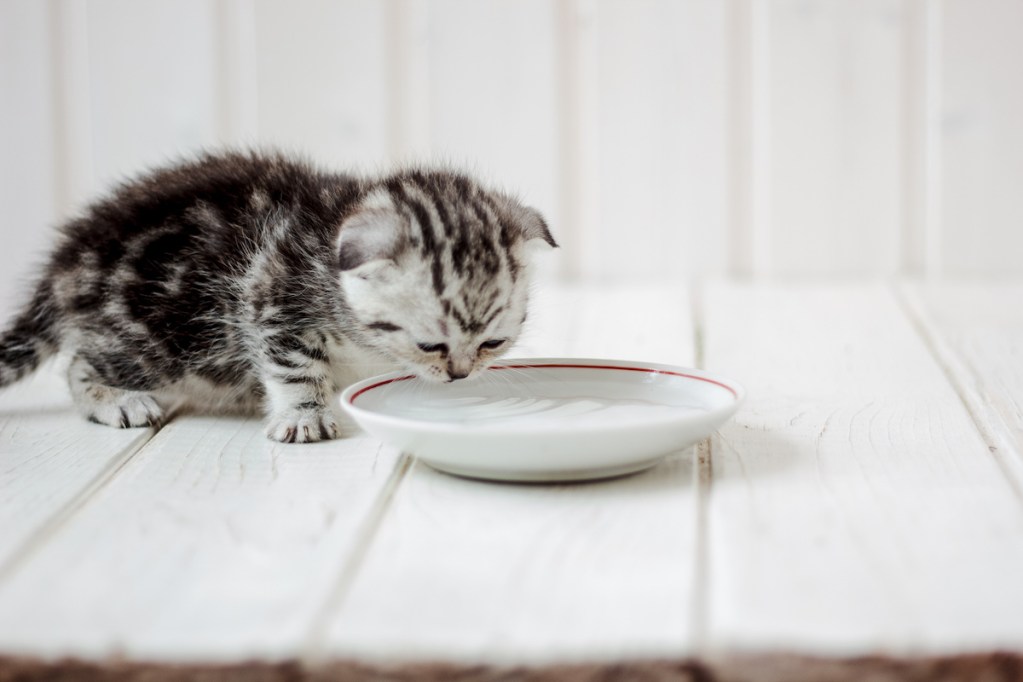Humans see water fountains just about every day, but that doesn’t mean our pets understand them. In the wild, most animals probably drink running water but are unlikely to approach a waterfall for their liquid needs (and let’s not forget, many of our pets’ undomesticated counterparts get most of their hydration needs from food). But what happens when a kitten does discover a cat water fountain and wants to take a sip? This baby cat shows us in a video entitled “She can play for a day.”
It opens with a tiny gray kitten putting her little paws up to an equally tiny water fountain. She spends some seconds examining it before diving in to attempt a drink only to be surprised by the splashiness. So kitten takes a different approach: standing up on the edges of the fountain to get at the water from the top. Kitty gets in a few licks until her paw winds up in the water — needless to say, the little fuzzball does not like that. The video ends with the gray cat shaking off her now slightly damp paws and giving up (we suspect she has a real water dish somewhere else).
Nearly every commenter had the same thing to say: Adorable. It’s truly unanimous on this one. ann!!! added, “It looks confused,” while Josh remarked, “He’s got his own infinite supply of water.” Still ☆Technik Inf☆ probably summed it up best with “awwwwww.” Truer words have never been spoken.

How much water should cats drink?
As an adult, your feline should be drinking water pretty consistently, if they’re eating dry food. The recommended amount is about an ounce of water for every half of an ounce of food. But wet food means they’re getting some of the liquid with their meal, and you’ll see a cat eating that go for the water bowl less frequently. Altogether, the right amount of water for cats is 1/2 cup of water per five pounds every day. For kittens who don’t even yet weigh five pounds, you’ll see them drink up to about half a cup, depending on age, size, and climate (the warmer the weather, the more they have to drink). If your animal does seem dehydrated, you should check in with your vet as this can be a symptom of bigger issues.
So should you give your kitty running water? Many cats prefer it since it’s similar to drinking from a stream, but you might have to teach them how to go about it. One option is to try out both a bowl and a cat water fountain to see which your individual cat prefers and then stick with that. Perhaps you’ll get an adorable video in the process.



